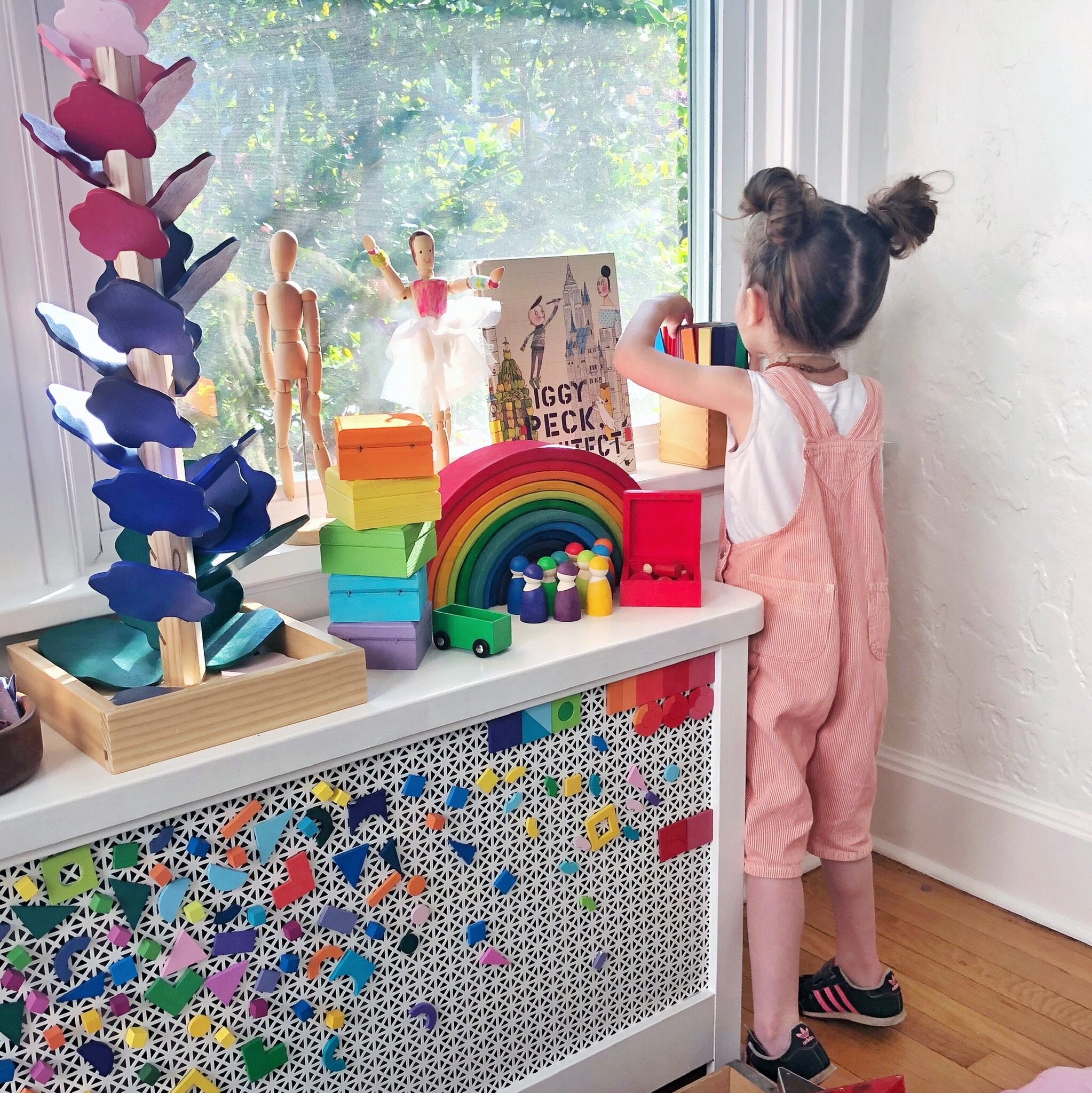Breaking Free from the "Look, Mommy!" Loop: Building Independent Play Skills
/If you have a child who constantly seeks attention and feedback, you might think they’ll never play independently. But rest assured, all children can learn to play independently. It may just take a little extra effort and patience on your part.
“MOMMY! Come look at my building!”
“Mommy, do you like my building?”
MOMMY!! LOOK AT ME!!!”
First, start by identifying your child's play style and interests. What are they drawn to? How do they typically play? Understanding these things can help you set them up for success when it comes to independent play.
For example, if they love trains, make sure their play space includes an area where the tracks are already set up for them, with a few extra pieces for them to add on. It’s more inviting for your child and they’ll be more likely to dive right in.
Second, try setting up play pockets near where you’ll be. Young children feel more secure when they can see you, and are more likely to get engaged in independent play. When your young child can't see you, part of their brain is constantly "on alert," wondering where you are and if you're coming back. This takes mental energy away from being able to dive deep into play. But when they can glance up, see you doing dishes or working, and know you're there, their brain can relax and fully engage with their toys and imagination.
Next, try introducing small increments of waiting time. For example, if your child asks you to come to look at their building, respond by saying
“I can’t wait to check it out in two more minutes. Can you set a timer on Alexa for me please?”
“You want me to come right now and I am making lunch. Put 4 more blocks on and then I'll be there to look!”
“I’m not going to look right now. Instead, can you describe your work to me?”
But what do I do if my child gets upset or starts crying when I say "in two minutes"?
“You really want to show me right now! It is so hard to wait. Let's move your Duplo over here where I can see it while I cook. You can keep building and I can watch from here."
"You really want to show me right now! It is so hard to wait. Go count how many blocks you used and come report back. By then, I will be ready to look.”
It's also important to remember that children who are used to constant entertainment and attention may need more practice in independent play. Be patient and remember that it's a skill that can be developed over time.
When you are talking with your child about their play, encourage them to tell you about their process and effort rather than just the end result. This helps them focus on the process of play rather than just seeking validation from you.
"Tell me about this part. It looks like you had to really think about how to make this work."
“I’m curious about how many tries it must’ve taken to get those blocks balanced in that way!”
“You used red! Lots of red!”
“This building is taller than yesterday. That’s different…”
Independent play is a skill that develops gradually, just like walking or talking. Some children naturally need more support than others, and that's completely normal. If you're seeing even small improvements over weeks or months, you're on the right track.




